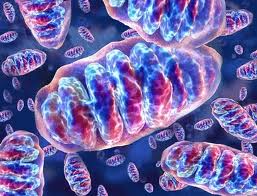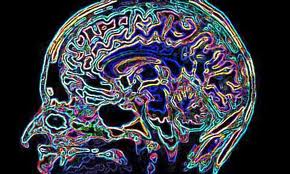 A new mechanism responsible for the origin of Parkinson's disease has been identified, contradicting some of the latest scientific theses on the causes of one of the most common neurodegenerative pathologies. The research was carried out at the University of Coimbra.
A new mechanism responsible for the origin of Parkinson's disease has been identified, contradicting some of the latest scientific theses on the causes of one of the most common neurodegenerative pathologies. The research was carried out at the University of Coimbra.
A team of researchers from the Center for Neuroscience and Cell Biology of the University of Coimbra (UC), led by Sandra Morais Cardoso, identified a new mechanism responsible for the origin of Parkinson's Disease, contradicting some of the latest scientific theories on the causes of one of the pathologies most common neurodegenerative disorders, which, according to the latest data, affect more than four million people worldwide.
The results of the study published in the world reference journal «Human Molecular Genetics», whose first author is PhD student Daniela Moniz Arduíno, reveal that mitochondrial dysfunction – responsible for the production of energy in cells – is largely responsible for the emergence of illness.
The Portuguese researchers demonstrated, for the first time, in ex-vivo studies (with cells from Parkinson's patients), that «the deficiency in intracellular traffic (cellular highways) is caused by the dysfunction of the patients' mitochondria». “We analyzed the entire pathway and found that, in Parkinson's disease, mitochondrial dysfunction is the event that underlies a deficient autophagy – a mechanism through which the breakdown of dysfunctional organelles and damaged proteins (biological waste that accumulates) occurs during aging and if it is not eliminated, it leads to cell death) explains the leader of the group, Sandra Morais Cardoso.
 This discovery, the result of work developed over the past four years, funded by the Foundation for Science and Technology (FCT), «provides important new clues for the development of future drugs that prevent traffic disruption and, in this way, ensure the normal intracellular transport, which takes place throughout the entire neuron, from the nucleus to synaptic terminals. We found that autophagy alone cannot be used as a therapeutic target after diagnosis, and therefore it is necessary to develop therapeutic approaches that simultaneously promote autophagy and restore cell traffic", continues the also professor at the Faculty of Medicine of the University of Coimbra (FMUC ).
This discovery, the result of work developed over the past four years, funded by the Foundation for Science and Technology (FCT), «provides important new clues for the development of future drugs that prevent traffic disruption and, in this way, ensure the normal intracellular transport, which takes place throughout the entire neuron, from the nucleus to synaptic terminals. We found that autophagy alone cannot be used as a therapeutic target after diagnosis, and therefore it is necessary to develop therapeutic approaches that simultaneously promote autophagy and restore cell traffic", continues the also professor at the Faculty of Medicine of the University of Coimbra (FMUC ).
Considering that the autophagic process has two distinct components, assuming, on the one hand, the role of quality control of the cells and, on the other, transforming - during prolonged fasting - the elements of the cell into nutrients to prolong the preservation of the organism, the Coimbra researchers studied the entire autophagic process and found that, in Parkinson's disease, its activation can be harmful.
 Having identified the new mechanism responsible for the origin of Parkinson's Disease, now «our challenge is to study and understand how mitochondrial dysfunction leads to the destabilization of cellular highways», concludes the researcher from the Molecular Mechanisms of Disease Group at the Center for Neurosciences. CU.
Having identified the new mechanism responsible for the origin of Parkinson's Disease, now «our challenge is to study and understand how mitochondrial dysfunction leads to the destabilization of cellular highways», concludes the researcher from the Molecular Mechanisms of Disease Group at the Center for Neurosciences. CU.
Author: Cristina Pinto
Press Office – University of Coimbra
Science in the Regional Press – Ciência Viva
Article reference:
Daniela M. Arduíno, A. Raquel Esteves, Luísa Cortes, Diana F. Silva, Bindi Patel, Manuela Grazina, Russell H. Swerdlow, Catarina R. Oliveira, and Sandra M. Cardoso. Mitochondrial Metabolism in Parkinson's Disease Impairs Quality Control Autophagy by Hampering Microtubule-Dependent Traffic Hmm. Mol. Gene (first posted online July 27, 2012), 2012doi:10.1093/hmg/dds309
http://hmg.oxfordjournals.org/content/early/2012/07/27/hmg.dds309.full.pdf+html


















Comments